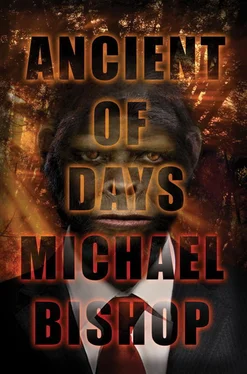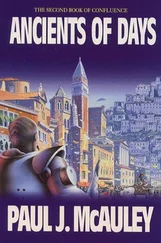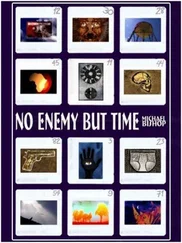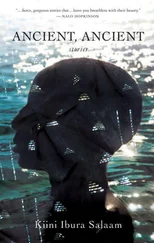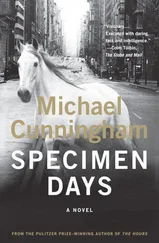He gestured at Adam, prostrate under a stiff hospital sheet. “That’s not a habiline . That’s not a ape. That’s a man. The proof is you married him. The further proof of it’s this gift of God hanging on your skirt. And people , Mrs. Montaraz, I can’t he’p but love. I love Adam. I love you. I love your little boy. If I seemed to dump hellfire on y’all last year, it was because I didn’t yet know you and Adam for the fine people you are.
“It’s likewise because I supposed—along with millions of other folks—just what the liberal press and those high-profile network TV folks wanted us to suppose, namely, that Adam was a ape—a naked ape—because it made a good story. Well, he’s not a ape, but a man. And the only sin either of you was guilty of is that of an appearance of impropriety in the eyes of the press and of some who, I admit, should’ve known better’n to believe what we saw in our papers and heard on our TVs. So please forgive me for preaching you and Adam up as an instance of our troubled country’s moral decay. Even Ol’ Happy’s human, ma’am.”
“Really?” I said. “What if, instead of forgiving you, they sued?”
McElroy flicked me an annoyed look, but again importuned RuthClaire: “I’m quite serious about the fullness of my sorrow over this. On the next Gospel Giveaway I do in Rehoboth, I’ll make you a re-tract, a earnest and thorough re-tract. It’d be my real pleasure.” He paused to assess the effect of this offer on RuthClaire. “Of course, it’s my duty to do it, too, but it’d be my pleasure as well. I mean that.”
Wearily, RuthClaire removed the empty baby-carrier from her back and slid it gently across the floor to the foot of Adam’s bed. Then she crossed the room and sat down in the folding chair that McElroy had been using. T. P. trotted after. She collared him and absent-mindedly knuckled his miniature Afro.
The evangelist spread his hands. “Well? Can you forgive me?”
“It’d be my pleasure, Mr. McElroy, if you’d just leave Adam and me out of your broadcast.”
“Nothing else?”
“That’d be plenty. Oh, you could find Paul a chair. And one for yourself if you’re going to stick around any longer.”
McElroy smiled, did a heel click, and departed to look for two chairs. I shuffled to the bed, grabbed Adam’s toes through the sheet, and wobbled them affectionately back and forth. He smiled up at me with his eyes.
Considering the ease of his task, McElroy was gone a while. RuthClaire used his absence to fill me in. The man had come to the Emory campus at the invitation of the Institute for World Evangelism at Candler Theological Seminary. He’d been in the city three days, speaking to seminary students and faculty at a variety of venues, including the William R. Cannon Chapel, one of the auditoria in White Hall, and the sanctuary of the Glenn Memorial United Methodist Church across North Decatur Road from Emory Village. Adam had deliberately scheduled his surgery to coincide with McElroy’s visit. Indeed, he’d written the evangelist a letter explaining the operation’s purpose, asking him to look in on RuthClaire during the procedure, and requesting, too, a visit from the busy Right Reverend once Adam entered a recovery room. He had improved his chances for a favorable response by including a $250 contribution to McElroy’s television ministry. He had also worked to pique the man’s curiosity (an instance, given the national appetite for news of the Montarazes, of almost touching overkill) by outlining his largely unguided religious researches over the past ten months. Now, though, he wanted an authoritative pronouncement about his spiritual state. Did he, or did he not, have a “soul”?
McElroy had replied that of course he did. On the other hand, he ought to give over the Biblically unsound, and soul-destroying, notion that he belonged to a prehuman species out of which yet another prehuman species had arisen, etc. A belief like that, denying the straightforward creation account in Genesis, put the soul in mortal jeopardy. Adam was obviously sincere in his questing, but sadly misled about which direction to go by today’s God-lost scientists and technocrats. McElroy would gladly counsel with Adam, even pray with him, while he recovered at Emory Hospital.
“He wrote McElroy?” I asked incredulously. “Sent him money?”
“Oh, yes. Adam’s keeping his options open. He’s written the Pope, the Dalai Lama, the Jehovah’s Witnesses, the chief elder of the Mormons, two or three ayatollahs in Iran, and a couple of voodoo artist-priests who exhibited work at Abraxas in February. If it meditates, sacrifices, or prays, Adam’s written it. Most of his correspondents reply. We have a scrapbook. We may need another one.”
Adam worked his hands free of the sheet and tried to sign. By appearing to focus his will, he made these gestures distinct enough for RuthClaire to interpret. She must give over her hostility to McElroy, he advised, for the man was there on his own valuable time to affirm Adam’s humanity.
With a folding chair and a chair with a cushion, McElroy returned. On the cushion rested a shiny bedpan in which two or three inches of water shimmered under the room’s fluorescents. McElroy set this chair down without sloshing any water out of the pan. The metal chair he gave to me to unfold for myself. Then he placed the bedpan—with a hokey flourish—on the food tray that swung out from Adam’s bed.
“This is distilled water,” he said. “I got it at the nurses’ station, and it’s physically pure, free of germs and pollutants.”
“Can the same be said of the bedpan?” RuthClaire asked.
“Oh, yes, ma’am. It’s been in an autoclave.”
“Well, Adam’s already had a sponge bath, Reverend McElroy. I gave him one this morning. There’s no need to repeat it now.”
“Has he been baptized?”
“What?”
“Has he received the sacrament of ultimate cleanliness?”
“I’m not sure I—”
“Has he been washed in the Blood of the Lamb?”
“From a bedpan?” I wondered aloud.
McElroy laughed. “The Lord and I make do with what’s available. By remaining unbaptized, Adam has begun to doubt his possession of the soul that even now he’s in danger of leaving to the Prince of Darkness forever. I can’t allow that, sir.”
Her hands on T. P.’s shoulders, RuthClaire stared at the evangelist as if he had proposed dousing Adam with lighter fluid. “This is in the worst possible taste,” she finally managed.
“You may be right, Mrs. Montaraz. Damnation has the weight of public favor on its side nowadays—it’s the in thing to shoot for—but your husband isn’t one to go along with the crowd simply because it’s a crowd. Ask him what he wants.”
Realizing that McElroy had played an unanswerable trump, RuthClaire pulled Tiny Paul onto her lap and numbly shook her head.
“I’ll ask him, then.” Looking down on Adam, McElroy said, “Do you wish to receive the holy benison of baptism?”
Adam made the gesture signifying Yes.
RuthClaire shook her head again, not believing that her husband would consent to what she regarded as a parody of the baptismal rite—but loving him too much to forbid him to continue.
McElroy closed his eyes. He asked God to further purify the water in the bedpan, immersed his hands, lifted them dripping, carried them to Adam’s head, and dramatically brought them down on the faint sagittal crest dividing his skull into hemispheres. “Be careful,” RuthClaire warned. “Adam’s jaw is a jigsaw puzzle of fitted pieces. If you slow his healing, I’ll…”
She stopped, but the warning got through McElroy’s devout trance to his understanding. Crooking his elbows, easing the pressure on Adam’s head, he intoned, “Adam Montaraz, husband and father, by the authority invested in me as a minister of the gospel, I baptize you in the name of the Father, the Son, and the Holy Ghost. Amen.”
Читать дальше
